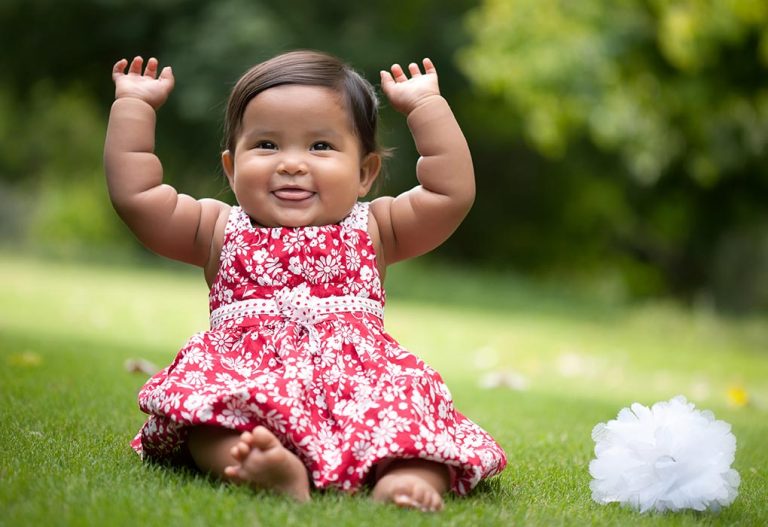How to Make Sure You Don’t Miss Key Stages of Your Baby’s Brain Development
Ever wonder if you’re doing enough to support your child’s brain development or accidentally skipping the important parts? Parenting is quite overwhelming and even though you’re doing your best to keep your baby happy and healthy, sometimes a little guidance can make sure you don’t miss time-sensitive opportunities to help your little one more.
From the moment a baby is born, their brain begins a journey of incredible growth. In fact, 90% of a child’s brain develops by the age of 5 (1). That’s why the early years are often called the “golden window” of brain development. During this time, every experience, every nutrient, and every moment matters.
So how can parents make sure they’re supporting their child’s brain development in the best way possible?
Stages of Brain Development
Behind every new word spoken or skill learned, the brain is hard at work, growing and making connections. Let’s take a look at the different stages of brain development from birth to age six.
- 0-1 Year : In the first year, babies begin to recognise voices, respond to sounds, and show emotions like smiling. They start to babble, reach for objects, and explore the world through their senses (2).
- 1-2 Years : During this stage, toddlers become more active and curious. They begin to walk, say simple words, and follow basic instructions. They show interest in objects and people around them and often copy what they see (3).
- 2-3 Years : They start forming short sentences and asking questions. Their thinking becomes more active, and they enjoy pretend play and simple problem-solving (4).
- 3-4 Years : At this age, children become more social and enjoy playing with others. They can speak in full sentences and express their emotions more clearly. They begin to understand rules, take turns, and show empathy (5).
- 4-6 Years : Between four and six, children develop stronger memory, focus, and reasoning skills. They start to understand numbers, ask many questions, and solve simple problems (6).
Why Nutrition Is Crucial for Brain Growth?
Just like a plant needs sunlight and water to grow, our brain needs the right nutrients to develop and function well, especially during childhood, when the brain is growing the fastest. What we eat doesn’t just fill our stomachs; it fuels our minds. Among the most important nutrients for brain development are iron and vitamin C.
1. Iron
Iron plays a central role in helping oxygen reach the brain (7). The developing brain needs a steady supply of oxygen to form connections, support learning, and keep energy levels up. Without enough iron, a child’s brain doesn’t get the fuel it needs, and they may (8):
- Struggle with attention and memory.
- Show delayed development.
- Be less active or alert.
- Have behavioural issues such as irritability or restlessness.
Foods Rich in Iron (9):
- Spinach and other dark leafy greens
- Lentils and beans
- Eggs
- Meats like chicken
- Animal liver
- Iron fortified food products
2. Vitamin C
While iron is powerful, it needs a little help. Vitamin C helps the body absorb iron more effectively. Think of it as iron’s partner in brain-building.
Benefits of Vitamin C for Brain Health
- Enhances iron absorption, especially from plant sources (10).
- Acts as an antioxidant to protect brain cells.
Foods Rich in Vitamin C (11):
- Oranges, lemons, and citrus fruits
- Strawberries
- Bell peppers (especially red and yellow)
- Kiwi
But let’s face it, daily routines can get hectic. Between school runs, packed workdays, and everything else, preparing perfectly balanced meals every single time isn’t always realistic. That’s where a smart nutritional supplement can help support your child’s brain development.
How Can I Choose the Best Nutritional Supplement for My Child’s Brain Health?
Choosing the right nutritional support means finding something that complements a child’s daily diet while addressing common nutritional gaps.
Danone’s Dexogrow has been specially developed with these needs in mind for children aged 2 to 6 years. It’s a scientifically designed supplement with nutrients to support both brain function and overall physical growth in children.
What Makes it Stand Out?
- 36 vital nutrients to support overall physical development and cognitive function (12).
- DHA and ARA to fuel brain development.
- Iron and Vitamin C work together to support mental alertness and better absorption (12) (13).
- Prebiotic fibre to support gut health and digestion (14).
It’s designed not just to nourish but to support the kind of active, curious, energetic childhood every parent hopes for. Because when a child is well-nourished and supported from the inside out, Dimaag Daudega!
Tips for Parents to Support Brain Development
You play a powerful role in shaping your child’s growing brain, often through simple, everyday moments. Below are some tips to help you support your child’s brain development in these early years.
1. Start Early: Even during pregnancy and infancy, brain development is in full swing. Breast milk is important in the early months.
2. Offer Balanced Meals: Include a mix of proteins, healthy fats, and iron and vitamin C-rich foods.
3. Talk and Listen Often: Nutrition is key, but so is stimulation. Talk, sing, play, and read with your child every day.
4. Limit Screen Time: Interactive play and real-world experiences are better for brain growth than passive screen time, especially in the early years (15).
5. Regular Check-ups: Speak with your paediatrician to monitor your child’s growth and ensure their nutritional needs are being met.
As parents, we all want the best for our children, especially when it comes to their development. While no one expects perfection, we can all take steps to ensure they’re getting the right nutrition at the right time. So, let’s give them what they need to succeed today and in the future.
Also Read:
Baby Brain Development
Foetal Brain Development
Tricks to make Baby Brain Sharp and Strong
Foods that are Bad for Baby Brain Development
Was This Article Helpful?
Parenting is a huge responsibility, for you as a caregiver, but also for us as a parenting content platform. We understand that and take our responsibility of creating credible content seriously. FirstCry Parenting articles are written and published only after extensive research using factually sound references to deliver quality content that is accurate, validated by experts, and completely reliable. To understand how we go about creating content that is credible, read our editorial policy here.
1. First Things First – The First Five Years
2. Children’s Hospital of Orange County – Toddler Milestones: Your Baby’s Development at 1 Year
3. Nemours KidsHealth – Your Child’s Development: 2.5 Years (30 Months)
4. UNICEF – Your toddler’s developmental milestones at 2 years
5. NHS – 4 year developmental milestones
6. NHS – 5 year developmental milestones
7. WHO – WHO guidance helps detect iron deficiency and protect brain development
8. National Institutes of Health – Iron
9. Healthdirect – Foods high in iron
10. Healthdirect – Vitamin C and your health
11. Harvard T. H. Chan School of Public Health – Vitamin C
13. Michigan State University – Iron and vitamin C: the perfect pair
14. Harvard Health Publishing – Prebiotics: Understanding their role in gut health













.svg)


















